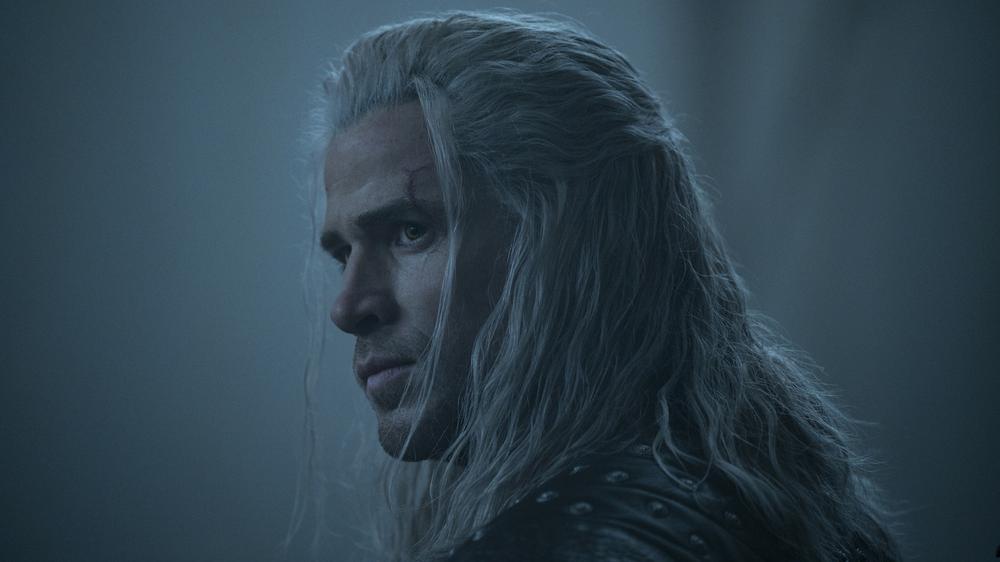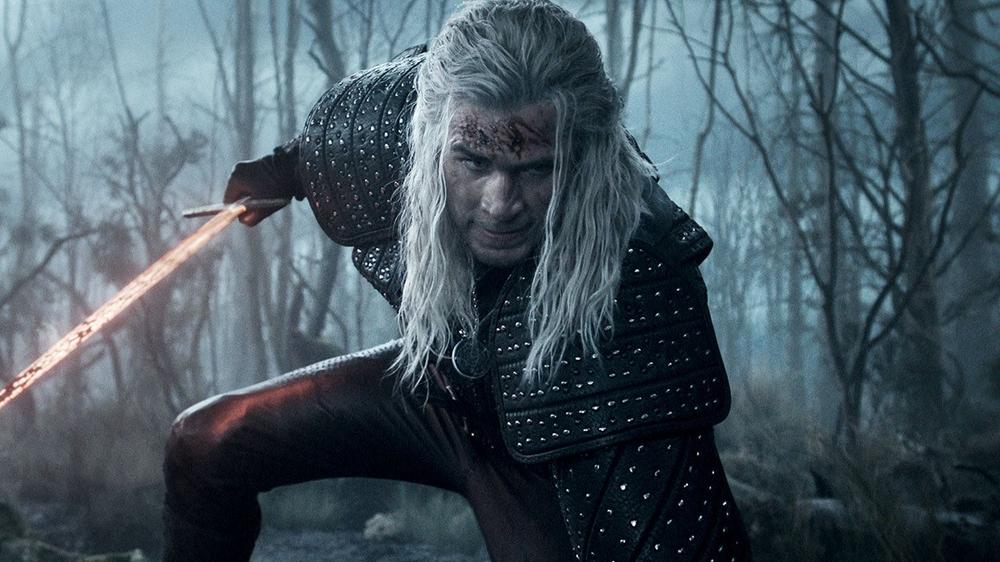Once again, we return to the Continent, and once again, The Witcher promises everything: magic, monsters, destiny, and now a brand-new Geralt. Yet for all its visual flair and ambition, Season 4 feels like it’s lost in its own shadow.
When The Witcher first arrived in 2019, it offered something rare for Netflix: a sprawling, unapologetically nerdy fantasy series with a morally ambiguous protagonist. Henry Cavill’s gravel-voiced Geralt was a winner, as was the show’s mix of monster-of-the-week pulp and intricate mythology.
But a lot has changed since then. With each new season, the story was stretched wider, and then, in October 2022, Cavill announced that he would be exiting Lauren Schmidt-Hissrich’s adaptation for pastures new. Seasons 4 and 5 are still going ahead to round off the series, leaving the role of Geralt wide open.
Enter Liam Hemsworth, who is taking on the sword of a character many believed untouchable. There’s much anticipation about his portrayal – and yet, as this season proves, Geralt isn’t the problem.
What is The Witcher Season 4 about?
Season 4 of The Witcher tracks Geralt, Yennefer (Anya Chalotra), and Ciri (Freya Allan) as they navigate a Continent ravaged by war. Each is on a separate path: one is on a quest to find Ciri with a new group of allies, another is rallying mages in the fight against Vilgefortz (Mahesh Jadu), and the third is drawn into a gang of outlaws known as the Rats.
The new episodes predominantly adapt Baptism of Fire, the third novel in Sapkowski’s Witcher Saga. It’s a grim, introspective book that centers on Geralt’s physical and emotional recovery, and his reluctant camaraderie with unlikely allies.
On paper, so to speak, Season 4 is a faithful adaptation, but as fans of the source material have no doubt come to expect from the Netflix series, the tone is an entirely different beast. It feels as if the writing team have taken on board fans’ criticisms, but rather than using them to fix what’s wrong, they’re just casting a wide net.
The result is a show that tries to be a little bit of everything: high fantasy, war drama, political saga, supernatural thriller, coming-of-age heist story, and even soapy melodrama. That ambition is commendable, but the end product is too busy and, ironically, less engaging.
A long road to nowhere
Just as muddled as the tone is the story itself. The different sides of the conflict and each character’s motivations felt muddled in The Witcher Season 3, which has only made it more difficult to untangle in Season 4.
If you concentrate hard enough, you’ll understand what Vilgefortz is really up to, why Emhyr’s the worst dad ever, and whose side Fringilla is really on, but the problem here is: will you care?
As for the main players, the inconsistencies are hard to ignore. One moment Geralt is a powerful monster hunter, the next he’s inexplicably shackled by a human he should be able to snap like a twig.
Yennefer’s rise to leadership has potential, but then it swerves into pantomime (which reaches new heights in Episode 3 with the Netflix debut of a wise-cracking, pointy-hat-wearing, broomstick-flying Halloween witch, who bears no resemblance to her book or game counterpart).
Ciri’s Rats arc is in parts devastating, in others entertaining, but again, it veers into parody. In Sapkowski’s books, the Rats are cruel and volatile; symbolic of Ciri’s descent into violence. Here, they’re styled like rebellious TikTok antiheroes.
The politics of the North and Nilfgaard remain muddy, and the show still refuses to zoom out. I hate to bring up Game of Thrones, but it’s a prime example of how to present the geography of war. In The Witcher’s case, battles unfold off screen, and even when they are shown, they feel oddly claustrophobic.
We dart from place-to-place, but with such short landscape shots and visual cues, it’s hard to forget you’re watching a very expensive TV show.
To its credit, Season 4 does retain the heart of Baptism of Fire: Geralt’s evolution as he rediscovers his humanity. His oddball fellowship of Milva (Meng’er Zhang), Cahir (Eamon Farren), Jaskier (Joey Batey), and newcomer Regis (Laurence Fishburne) forms, creating a unique dynamic that builds to a smorgasbord of backstories in Episode 5.
Liam Hemsworth holds his own as Geralt
Now, it’s time to address the Cavill-shaped elephant in the room. Hemsworth won’t erase Cavill’s portrayal, but he earns the medallion. He plays Geralt a touch looser, less monolithic, and he performs well in action.
Whatever issues you may or may not have with Season 4, Hemsworth isn’t one of them. Sure, he doesn’t quite command the room in the same way as his predecessor, but he gives a fine performance while lending Geralt a new level of vulnerability.
As for the rest of the cast, they absolutely shine in their respective roles, once again serving as the highlight of the show. Chalotra continues to be The Witcher’s secret weapon, stepping confidently into Yennefer’s leadership role (and her fight choreography is among her best work yet).
Allan is utterly compelling as Ciri – even when the writing veers into campy territory, Allan locates the real emotions underneath. Batey’s Jaskier is another highlight, though the script leans way too hard on meta humor, and his big musical number will divide the room.
But the real MVP is Fishburne’s Regis, a charismatic barber-surgeon with a centuries-old secret. He brings warmth, wit, and a commanding wisdom that The Witcher badly needs. An animated aside delivers his backstory, proving to be a creative gamble that actually pays off.
From a visual standpoint, the show is solid; the costumes and set designs are elaborate (even if some makeup choices scream 2007), the VFX are for the most part slick, and the monsters we do see look expensive in the best way. But production polish can’t cover up a script that keeps chasing new ideas instead of committing to the ones that matter.
Is The Witcher Season 4 good?
Not really, though it isn’t entirely hopeless. The production values are higher than ever, the cast does solid work, and there are flashes of brilliance. But the storytelling remains overstuffed and oddly weightless.
Season 4’s problem isn’t that Henry Cavill is gone. It’s that The Witcher still doesn’t know what kind of show it wants to be.
The Witcher Season 4 review score: 2/5
The Witcher Season 4 is beautiful to look at but empty at its core. Hemsworth does enough to justify returning for Season 5, but unless the storytelling finds its focus, no amount of magic portals can save it.

 Toyota evolve la sua strategia: GR e Century diventano marchi autonomi
Toyota evolve la sua strategia: GR e Century diventano marchi autonomi